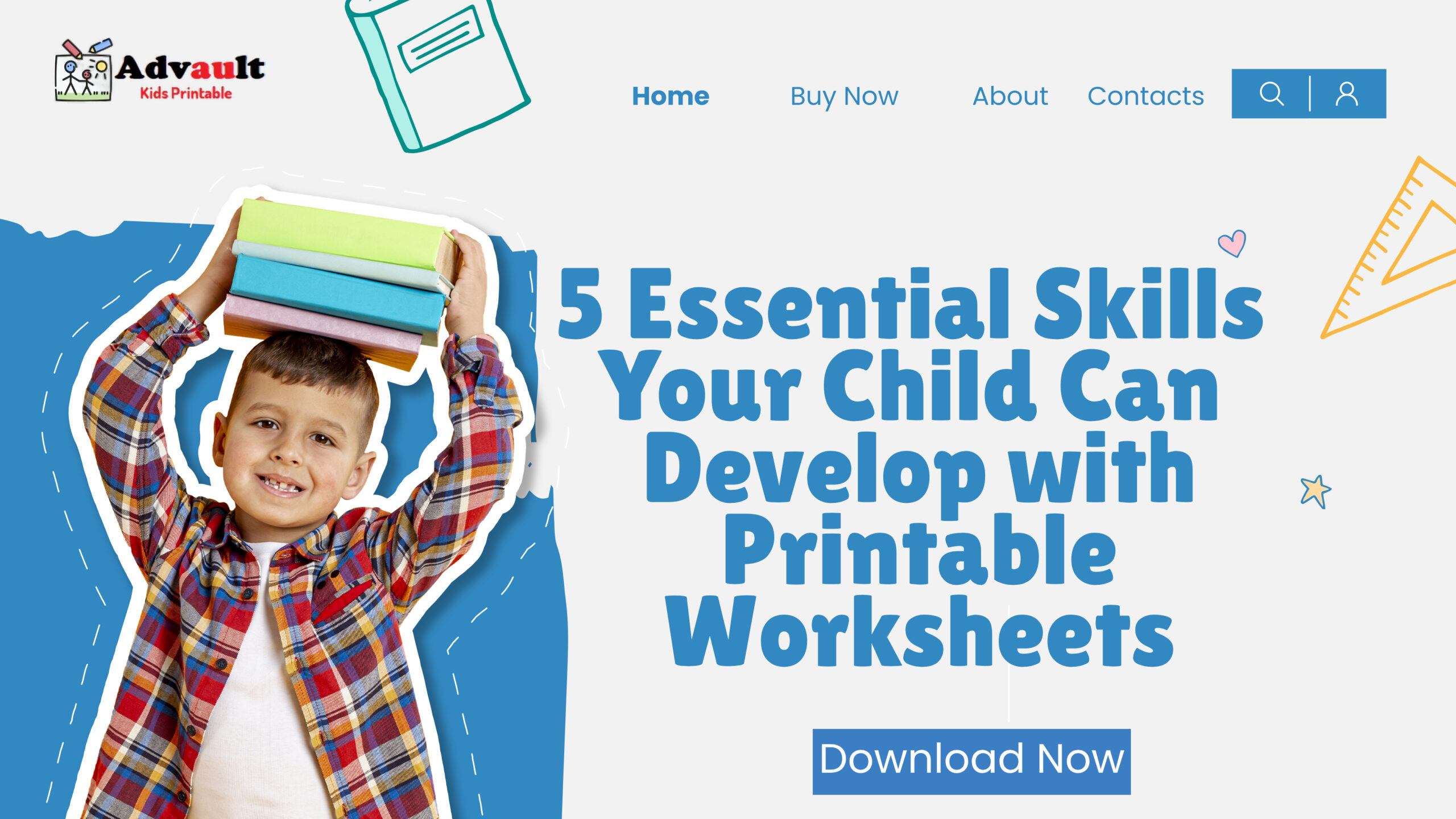
Introduction: Building Foundational Skills Early On
Early childhood is the ideal period to introduce skills that form a strong foundation for lifelong learning. Printable worksheets offer a simple, effective way to promote holistic growth by covering a wide range of activities that foster essential skills. These engaging, structured worksheets not only make learning enjoyable but also provide a well-rounded base that can set children up for success in school and beyond. Here are five crucial skills that children can develop with the help of printable worksheets.
1. Fine Motor Skills: Writing, Cutting, and Coloring
Fine motor skill development is fundamental for young children, as it prepares them for writing, drawing, and other hands-on tasks. Printable worksheets that focus on activities like tracing shapes, cutting along lines, and coloring within specific areas are excellent for honing these skills. By repeatedly practicing these activities, children can strengthen their finger muscles, refine hand-eye coordination, and become more comfortable holding and manipulating writing tools.
- Tracing Worksheets: Encourages precision and prepares children for forming letters and shapes.
- Cutting Practice Sheets: Enhances hand strength and control by guiding children in safe cutting exercises.
- Coloring Pages: Promotes creativity while improving the ability to stay within boundaries.
2. Cognitive Skills: Problem-Solving and Critical Thinking
Printable worksheets that challenge children to think critically or solve problems foster cognitive development. These worksheets may include matching, sequencing, and sorting exercises that teach children how to recognize patterns, make connections, and think logically. For example, a worksheet that asks children to group similar objects by color or shape requires them to analyze the differences and make decisions, which enhances problem-solving skills.
- Pattern Recognition Worksheets: Boosts children’s ability to identify sequences and predict outcomes.
- Matching Activities: Develops categorization skills and promotes understanding of relationships.
- Simple Mazes and Puzzles: Encourages decision-making and boosts focus.
3. Language and Communication: Vocabulary and Sentence Building
Printable literacy worksheets introduce children to early reading and language skills, supporting vocabulary building, letter recognition, and sentence formation. Through tracing letters, recognizing words, and constructing basic sentences, these worksheets lay the groundwork for literacy. Early exposure to these skills through fun and engaging worksheets can instill a love for reading and communication.
- Letter Tracing Sheets: Reinforce letter shapes and promote familiarity with the alphabet.
- Word Match Activities: Improve vocabulary by connecting pictures with corresponding words.
- Sentence Construction Exercises: Helps kids understand word order and sentence structure basics.
4. Numeracy: Understanding Numbers, Counting, and Basic Math
Early numeracy skills are another crucial area of development, and printable worksheets focusing on counting, number recognition, and simple math operations provide the perfect introduction. Through exercises like number matching, counting objects, and basic addition, children learn the fundamental concepts that will support future math learning.
- Number Recognition Worksheets: Familiarize children with numbers and their values.
- Counting Exercises: Encourages an understanding of quantity and sequence.
- Simple Addition and Subtraction Worksheets: Builds a foundation for basic math concepts.
5. Social and Emotional Skills: Confidence and Independence
Printable worksheets also contribute to the growth of social and emotional skills. Completing worksheets independently gives children a sense of accomplishment, helping them to build self-confidence and a positive attitude toward learning. As children begin to track their own progress, they experience a growing sense of independence and self-worth, essential traits for long-term academic success.
- Reward-Based Activities: Encourages children to complete tasks for a small achievement, promoting positive reinforcement.
- Progress Tracking Sheets: Allows children to see their progress, fostering a sense of pride and motivation.
- Self-Assessment Worksheets: Teaches children to reflect on their work and recognize their own growth.
Conclusion: Support Skill Development with Our Worksheet Bundle
With over 14,000 customizable worksheets designed specifically for early childhood development, you have a vast resource to introduce a wide variety of skills to your child. Each worksheet is created to be engaging, supportive, and educational, making it easier for children to build confidence in their abilities while enjoying the learning process. Equip your child with the tools they need to excel in school and beyond—start today with our comprehensive worksheet bundle that makes foundational skill-building both effective and enjoyable.
